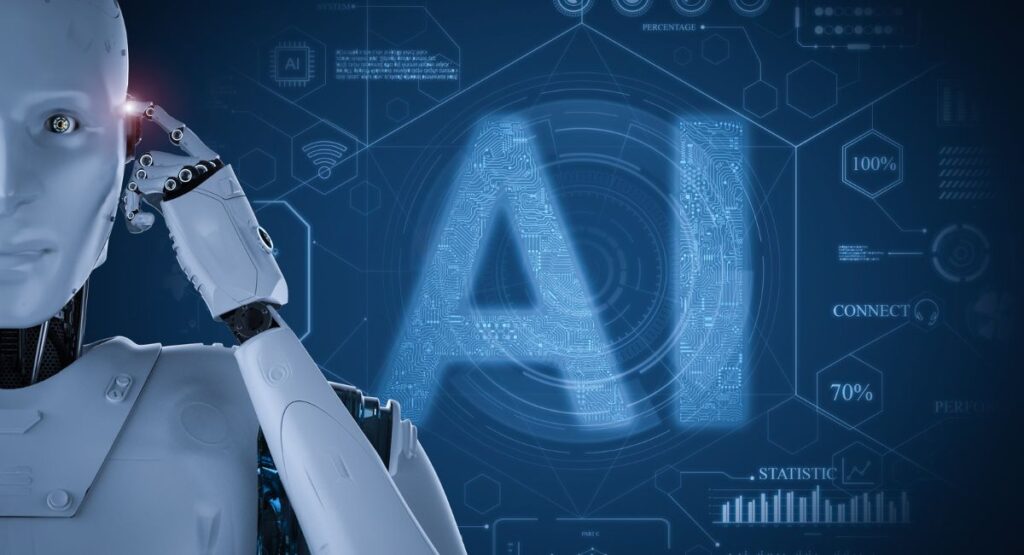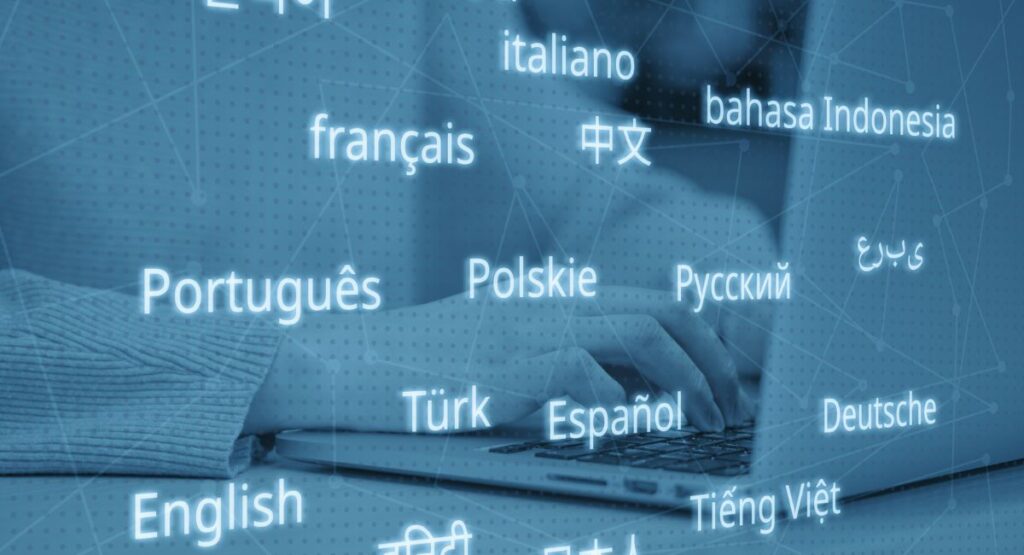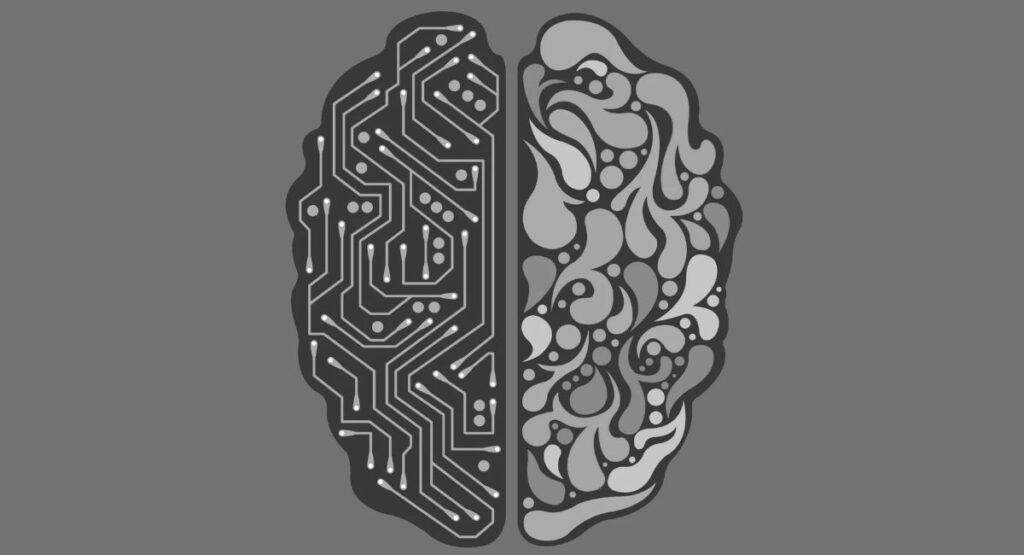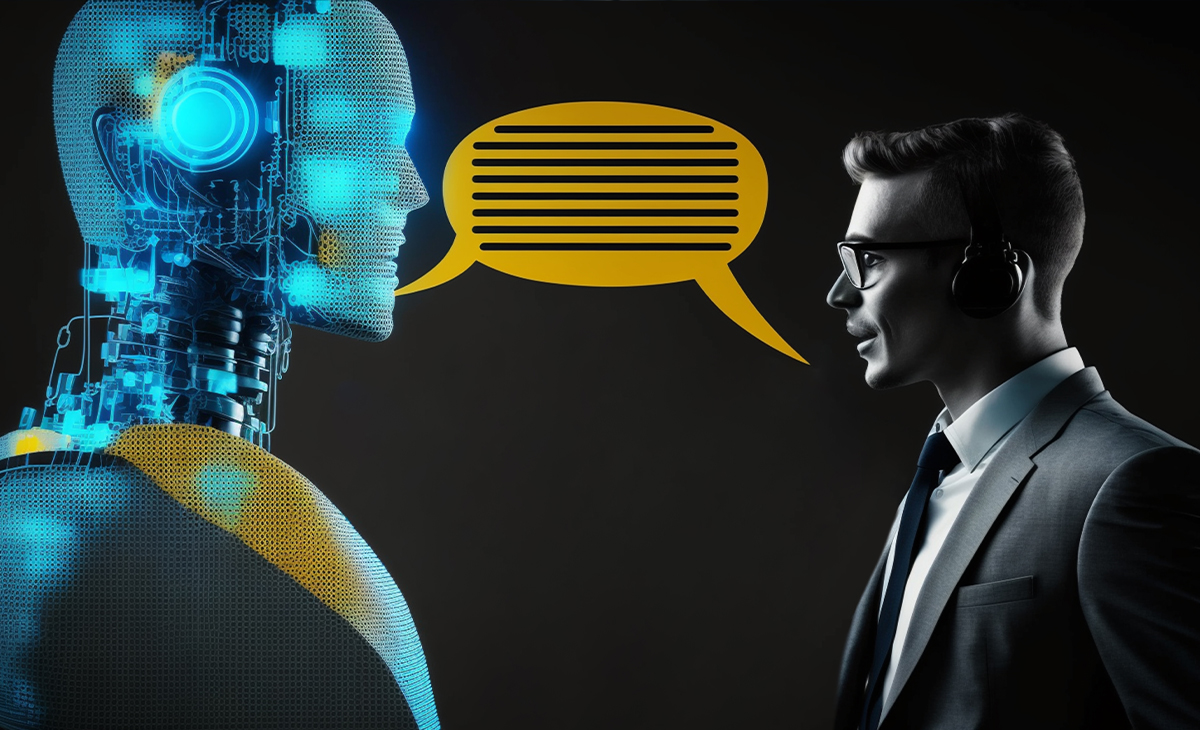AI (Artificial Intelligence) has become an essential tool for humans in recent years. Not only does AI give machines the ability to think like humans, but it also performs a wide variety of tasks. AI is used with chatbots, self-driving cars, streaming services, healthcare technology, and even translation. Some experts are asking the question of whether AI will overtake jobs done by humans!
For now, AI can perform fantastic work in many areas; however, it’s not yet ready to take over human jobs. AI is fast growing into an assistant that complements human work, including translation work.
Many businesses are turning to AI for the translation of their business documents. But is AI able to do all the work of a human translator? We’ll take a look at that question in this article. First, we briefly explain what AI is and how it is used in translation work. We also review the pros and cons of AI vs. human translations and when a company may want to choose one or the other.
Table of Contents
What is AI?

AI is a branch of computer science that deals with building smart machines that mimic human intelligence and thinking. Artificial intelligence is mainly used in computer systems, with a wide range of applications such as speech recognition, language processing, and more.
Due to its language capabilities, AI is increasingly being used for translation services. The software is different from standard machine translation. The technology does, however, use machine learning. AI translator tools can use advanced machine learning and apply this to languages. AI-translation tools use neural machine translation (NMT).
AI translation tools can now recognize complex sentence structures, tone, and more. Some also have the ability to recognize humor.
Some businesses find that AI translation tools are faster than human translators and are usually more accurate than standard machine translation. However, these machine translations are not as precise as the work of human translators.
Advantages and Limitations of AI Translation
As noted in the previous section, AI translation tools have advantages and disadvantages. We’ll take a look at both in this section.
Advantages of AI Translations
- Speed and efficiency: AI translators can take in large amounts of data and translate the text within a few seconds. For this reason, some businesses have started integrating AI translation tools into their workflow and processes.
- Accessibility: AI translation tools offer accessibility by being easy to integrate with other tools and platforms, making them convenient for individuals
- Cost-effective translation tool: the cost of an AI-powered translation tool has drastically decreased in recent years. The result is that individuals and businesses now have access to instant translations without the time and cost of working with a translator or a translation agency.
- Versatility: AI translation tools are evolving at a fast rate; they learn and improve quickly, making these tools a great partner that can work across different industries and around the world.
Cons of AI Translation
- Lack of cultural context: unfortunately, this is one of the biggest cons of AI technology for translation. The software cannot understand the cultural context, which leads to inconsistencies and errors.
- Perpetuating biases: AI translators get their information from the Internet, so they may implement biases within the text they translate.
- Poor linguistic context: these translation tools are also unable to recognize or handle idioms, and some types of humour are not well understood when translating.
- Data security: translation often means working with sensitive information. Unfortunately, there is a high possibility of data breaches with AI tools.
As you can see, there are both advantages and disadvantages to using AI translation tools. In the next section, we’ll review the importance of human translations.
The Importance of Human Translations

Unlike AI translation tools, human translations, such as those provided by Pollion, can deal with nuances, cultural context, and more. Human translators understand idioms, humor, etc. These are all advantages that human translations have over those produced solely with AI. We believe that AI, at least for the foreseeable future, will not overtake human translations. Instead, AI will become a more effective, efficient partner for human translators.
Businesses are increasingly reaching out to global markets. For this reason, they must use multiple languages for their outreach. To avoid miscommunication, which can cause significant workflow delays and negatively impact an organization’s brand and image, it is crucial to ensure accurate translation of materials.
These are the reasons human translations are so important and why AI (at least at this point) is not able to produce the best translations in all instances.
How to Choose Between AI and Human Translation?

So, how can you choose between when to use AI or human translation services? That’s what we’ll explore in this section. It can be challenging to determine which translation service is best.
When to Choose AI Translation
You might consider using AI translation tools for projects that have a large volume of content to translate. While the accuracy and cultural context may not be good, these can be corrected by human translators later. The key here is to translate as much of the material as possible. A fast turnaround is especially crucial when dealing with a tight deadline and a large amount of content.
Another way to use AI translation tools is with social media content, reviews, and more. For these tasks, AI is usually the best choice. Here, the text needs to be quickly translated, and a high level of accuracy is not required. It’s crucial to translate and get the messages out quickly.
Read also:
- The Role of ChatGPT in the Future of Business
- Unveiling the Potential of OpenAI’s ChatGPT
- AI Translators & Their Future in Professional Translation Work
When Should You Use Human Translation?
Human translators are best when your company is dealing with content that has cultural nuances, language sensitivities, humor, idioms, and more. In this case, a highly accurate translation is essential to reaching the target market correctly and efficiently.
A human translator is also better if the content deals with a specific subject matter. Here, again, AI may not have the knowledge to deal with translating the text correctly. In addition, AI may not be able to correctly manage the translation of jargon and other specialized language contained in the content. A human translator who has expertise and knowledge of the subject is the better choice.
Cultural sensitivity is another reason to choose a human translator over AI. Human translators, like those who work for Pollion, who have experience with the language and knowledge of the culture, can better translate the material to fit the target audience. AI translators lack this ability.
Related Post: Why Fast Translation Services Are Not Luxury Today?
Qualifications and Skills Required to Become a Professional Human Translator
Human translators are highly skilled individuals who have expertise in language and communication. They have the ability to read and comprehend text and convert the written word from one language into another. So, what skills and qualifications are needed to become a professional human translator?
Here are the skills and qualifications that a professional translator usually requires in their work:
Fluency in Another Language
Before becoming a translator, an individual must learn and master a second language. They must become fluent in their second language and may even earn a bachelor’s degree in their chosen language to become a translator.
In-depth knowledge of the languages they want to work with is also required. They must learn the following about each language they work with:
- Grammar structure
- Specialized terminology (primarily if the individual specializes in an in-depth subject)
- Cultural awareness and sensitivity
- And more
Being fluent in a particular language is not enough. Anyone wanting to become a professional translator must also develop translation skills. In addition, they must learn how to produce clear, accurate translations, which usually requires specialized training.
Professional translators, like those hired by Pollion, may also want to consider becoming certified. Being certified is not usually required to work in the translation industry. However, certification in translation shows they have the skills needed for the job.
In addition, an individual who would like to become a professional translator may also want to target a specific industry and learn its terminology. For instance, a person interested in medical translation work should focus on learning medical terminology.
Finally, to become a professional translator, it’s also essential to gain work experience. Some translators start by doing freelance translation work and may eventually become hired by a translation agency. It’s also possible to take on volunteer work to gain this valuable experience. Paid and unpaid internships are another choice for gaining translation work experience.
The Future of Translation and the Potential for AI and Human Translation to Work Together
As neural machine translation (AI) advances, artificial intelligence will increasingly handle more translations. However, the disadvantages will stay the same as they are now. AI does not have the ability to discern cultural nuances and more. AI translation tools will continue to evolve, but we don’t feel they will ever completely replace human translators.
We envision a future where AI translation tools work alongside human translators for optimal results. The combination would be the best of both worlds because fast translations are necessary. Yet, accurate translations, cultural context, and other nuances often require human input to supplement the capabilities of AI tools. Therefore, human knowledge of the local culture, cultural context, and customs will remain essential to translations going into the future.
AI will continue to facilitate and accelerate the work of human translators, making hybrid translation services the norm from now on.
